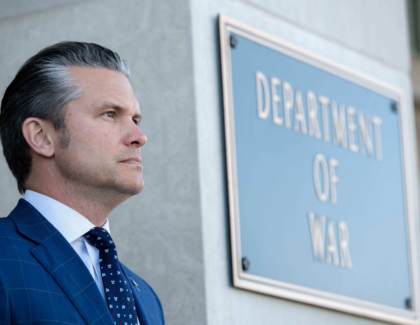Sign up for the daily CJR newsletter.
We can all agree that the weather has been unseasonably warm this summer. But fewer people, including media types, agree on whether the high temperatures are a natural occurrence or a consequence of global warming.
Conservative commentator George Will said on ABC’s Sunday morning talk show This Week that it’s easy to explain the recent heat. “One word: summer,” he said adding, “We’re having some hot weather. Get over it.”
Will’s comments were ill-timed. On Wednesday, the National Climatic Data Center (NCDC) released an overview of the climate in June, which confirmed that the average temperature for the US last month was two degrees above the 20th-century average. According to the report, that makes the last 12-month period the warmest the nation has experienced since recordkeeping began in 1895. Some outlets took the opportunity to publish charts and maps to visualize the record-breaking temperatures.
The June figures were part of a larger annual “state of the climate” report, released on Tuesday, in which the National Oceanic and Atmospheric Administration tried to work out whether various recent freak weather events were more likely to occur because of global warming. It found that last year’s Texan heatwave was 60 times more likely now than it was in the 1960s.
Using probability to calculate the likelihood that a weather event was caused by global warming is a new science, known as “probablistic event attribution”. But it’s already changing the way journalists talk about climate change, by lending them the scientific habit of never being definitive. That can have a damaging effect on the semantics journalists use to describe freak weather events, as David Roberts notes in a post on Grist. For example, we routinely say, “Smoking causes lung cancer,” even though, in some cases, smoking might not be the cause. We should be equally careful of our word choices when reporting on climate change, or skeptics can seize on the ambiguities.
In this case, even the odds are being debated. The NCDC put the likelihood of the heatwave occurring randomly at 1 in 1,594,323. As noted by Jason Samenow in the Washington Post, that number was refuted by a climate blogger named Lucia, who recalculated the odds as 1 in 10 (she later revised this to “less than 1 in 100,000”). Another atmospheric scientist, Michael Tobis of Planet3.org, said the NCDC figures were “excessively alarmist.”
As for George Will: this is not the first time he has denied the effects of climate change, and it seems to be earning him a bit of a reputation. Noam Schrieber, a senior editor at The New Republic, tweeted that Will’s comments were “just disgraceful,” among other things. A Texan environmental blog, Burnt Orange Report, called his comments “a blast of hot air.” Meanwhile OnEarth, an environmental magazine, responded to Will’s assertion with a string of temperature statistics prefaced by the headline: “Get Over THIS, George Will.”
Has America ever needed a media defender more than now? Help us by joining CJR today.






